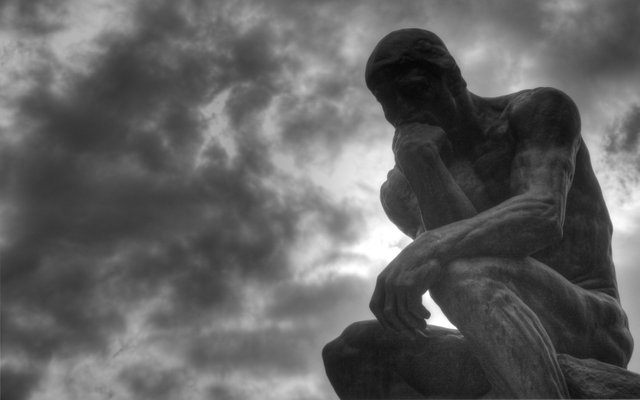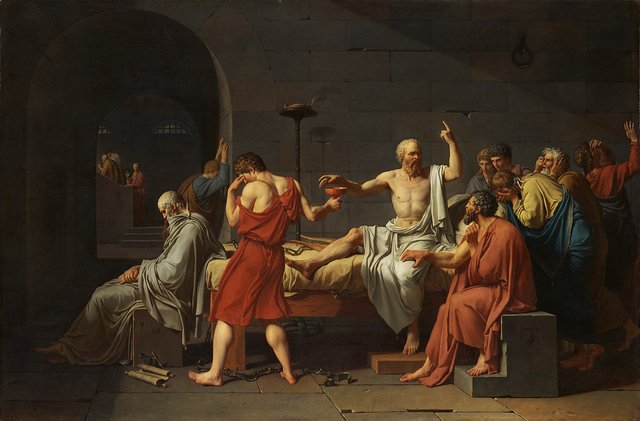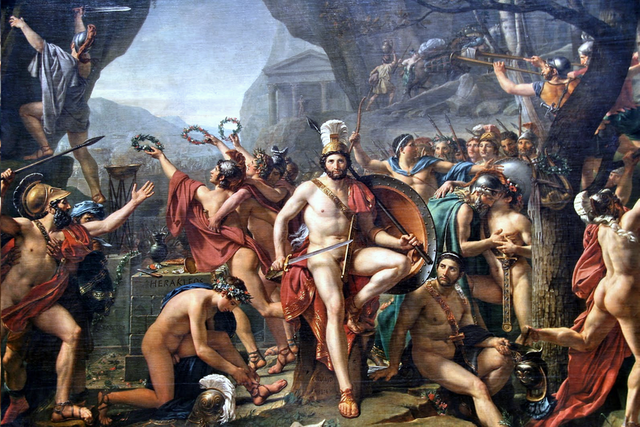Understanding freedom

Freedom is probably one of the most difficult concepts to understand, it is curious how people of such disparate ideologies and beliefs call themselves as seekers of freedom, or otherwise, free people.
It is evident that the word "freedom", like the word "democracy", are almost universally associated with positive connotations. As the specific case on democracy already dealt with some time ago, now I will try to focus more specifically on freedom.
In the past I have partially defined the concept of freedom:
Being free means being able to choose between all the options, and when one of these options is blocked, unable to choose, even for ourselves, then man loses his freedom. If you are afraid to do something, and you avoid doing it with all your might, because the fear that exists inside you tells you not to do it, then you are unconscious slave of your fear, because he is conditioning your options. This does not mean that you should do something that you don't want, but on the contrary, it is precisely because of that, that you don't do it, and not because something, such as fear, limits your options or forces you to do something.
This is a fairly complex definition of freedom to explain to many people. Because it implies that it is not only oppressors/oppressed, but also it is about people who oppress themselves, a case quite common today, although I will delve into it a little later, because I consider it essential to go back more than two thousand years ago, where the first ideas of freedom were conceived: at the Ancient Greece.
We all know roughly the most prominent among all the Greek polis; Athens, that land of freedom, democracy and philosophy, foundation of the greatest Western knowledge, and on the other hand, Sparta, land of aristocrats and warriors, men made to fight and not to think, cannon fodder that only served to protect the other polis of the external elements that wanted to subjugate the Hellenic peoples.
It is evident to all that in greater Athens there was higher freedom than in Sparta and in any other Greek city-state ... or not?
What would happen if I told you that you would be totally wrong by making this asseveration? What would happen if I told you that you've probably misjudged all this time? What would happen if I told you that in Sparta there was more freedom than in Athens and that you probably haven't been able to understand it?

First of all, we must give the lie to the oversized Athenian freedom, of course, without wanting to discredit such a magnificent city. It is evident that at that time these levels of freedom were totally novel and exceptional, nevertheless, both the supporters and the detractors benefited from oversizing Athenian freedom. Plato criticized the democracy and all the social organization of Athens, arriving at a point to exaggerate it as a kind of utopian/dystopian panarchy. However, we know that Athenian freedom never reached these levels, thinkers like Socrates were executed for questioning the gods, and many others like Anaxagoras or Diagoras had to flee to avoid being prey to that same fate.
In Sparta, many of these aspects were similar or worse than those in Athens, we also know that the Spartan state got into people's lives and completely violated many of their liberties, which the Spartans accepted honorably as a military discipline.
However, when we speak of freedom, we are not only talking about a quality present in the interaction of man with his peers or with society, but we are also talking about that quality that exists in the interaction that man has with himself.
It is quite common for people to focus usually on the most external aspect of freedom, which is the area we all know, where there is no coercion on the part of the State, where people are free to think, believe and express themselves in the way they most desire it, that is, physical freedom, in which we are not slaves of any entity or external person.
The great obviated when talking about freedom, is that freedom that exists in the personal, internal freedom, when we are not slaves of ourselves, that is, when we are not slaves of fear, when we are not slaves of the temptations, when we are not slaves of impulses, when we are not slaves of our insecurities or our weaknesses, when we don't succumb to vices or limit ourselves to being what we think of ourselves.
It is certainly a freedom that is more difficult to see, but at the same time more valuable, than external freedom. And since I know that at this point it is possible that many will no longer understand it, I will try to explain myself a little more.
Many times we don't understand why since the beginning of our civilization, fear, lust, gluttony, greed, and many other aptitudes were seen as the lowest of a man, but it is quite simple, if you are not able to control your impulses, your fears, your temptations, then they control you, and you lose freedom with your own approval.
In this way, if we cannot control ourselves, then something is fulfilling that role for us. If we drink or smoke impulsively, then these actions endanger our inner freedom, and the problem is not alcohol, cigarette, or any drug, no, the problem is that if we can't control our impulses, our impulses control us.
With these explanations we can realize that both Athens and Sparta were pioneers in freedom, Athens in the external aspect of it, and Sparta in the internal aspect, however, who came to deepen more in their respective field were the Spartans, who with his amazing discipline could defend his freedom against terror, fear, and above all, death.
Every man always has the ability to be free, it is by choice that freedom can exist, and in the same way freedom can only be removed by ourselves. If someone wants to force or subjugate us by force, trying to take away our freedom, and has the physical ability or the tools to submit, then man balances on two options; To die free or to live as slave, it is evident that most people always choose the life of slave, preferring to make concessions in their freedom rather than confronting force, but the Spartans had the ability, due to their internal discipline, to choose fight for his freedom risking his life, rather than submit to a life of slaves.
The sample of this occurs during the Battle of Thermopylae, when King Leonidas and the 300 Spartans remained to fight against the powerful Persian Empire that had already broken its lines. These men preferred to die being free than to live in slavery to the Persians.
If someone wanted to subjugate us, we could surrender very easily alleging that their coercion took away our freedom, however, we were the ones who chose to give up our freedom before facing force.
Many could say that we never decided to face those circumstances, and therefore we were conditioned, but the reality is that we are only free to control ourselves, and not the circumstances that surround us, who is free from the circumstances that try live without breathing, or try to take a leap without ever falling to the ground, human freedom only serves to act under our own will, but not to act under our own conditions or circumstances.
It is curious how after the Peloponnesian War, the Spartans managed to dominate the Athenians, forcing many of these to a life of servitude as slaves. This shows, as a maximum example, that freedom without discipline descends to absolute slavery.
Nor do I intend to overstate Spartan freedom, it is clear that its physical existence was based on vassalage to the State, and every individual was raised as a slave of the collective. However, their strength and discipline led them to have a huge amount of internal freedom, which they defended to death at all times, in the Great Rhetra (a kind of Spartan oral constitution) a life of military function was anticipated from the 21 until 60 years, which was only possible in very healthy minds, Leonidas himself died before the Persians shortly after finishing the military age, and many of the 300 famous Spartans were around 50 years.
Personally, I see freedom as one of the highest goals and objectives, which not everyone can conquer, and which not everyone wants to do, but which in turn represents the maximum form of maturity and strength that a man can demonstrate, because it means that he has accepted that he is the owner of his life, that he is responsible for his actions, and that he only corresponds to himself. To be free means not to be a victim, because one is responsible for its results, and neither is it a victimizer, since being free implies inherently a moral force that pushes man to do what he considers to be right.
When you are free you accept the preponderance of our own actions in our results, both for good and for bad. No one who is able to point fingers at another to blame him for his personal misfortunes can truly be called a free man.
Finally, I pose the following question: Can a slave be freer than modern man?
Having seen everything we have seen, then I would say yes, because there is no worse slave than that who is a slave to his own vices, and who, out of ignorance, can't understand the meaning of freedom, because the greatest chains of slavery they are not found in the hands and feet of slaves, but in the brain and heart of a man who does not know that he has lost his freedom.
Everything can be taken from a man but one thing: the last of the human freedoms—to choose one’s attitude in any given set of circumstances, to choose one’s own way.
Viktor E. Frankl


Curated for #informationwar (by @openparadigm)

Relevance: FREEDOM!!!!
Our Purpose
Indeed.
Great post again vieira, I love reading them.
Thank you! I love that people love what I write.
Wow I had not been in Steemit for quite some time, unfortunately I was very sick. But again I'm here and it's good that one of the first post I read is yours, they've always caught my attention.
I feel that the freedom we can have most human beings is currently limited, beyond the external limitations as you say, such as freedom of expression and among other things. Everything goes beyond, but the real limitation that we find in modern life is society and the prejudices it creates where it subjects and punishes people for being different, not allowing them to be who they really are, because everyone expects an individual fits in the social "norms" to which we are all exposed, that is the first thing we must work on, much progress has been made but there is still a long way to go to be a clearly adaptive society and that no one is afraid to show itself as it is for so be really free. Thanks for your post!
Well, everything you say about society, prejudices, etc., are external "impositions", and of course it must be treated, although the first thing is, and always will be, treating ourselves, that is why I place more emphasis in personal freedom.
The first thing is to change ourselves before trying to change society. It's good that you rejoin, and thanks for passing. Greetings.
Interested in your discussion and in the topic generally, I want to know how people today think of the ideas behind Western Civilization and I'm also working out the ideas for myself.
I have many disagreements with your conception of liberty. Chief among these is the belief in liberty as the highest value; which shows you how greatly I disagree. If you want me to elaborate my opinion, say so.
I am interested in reading each of the words you are going to write.